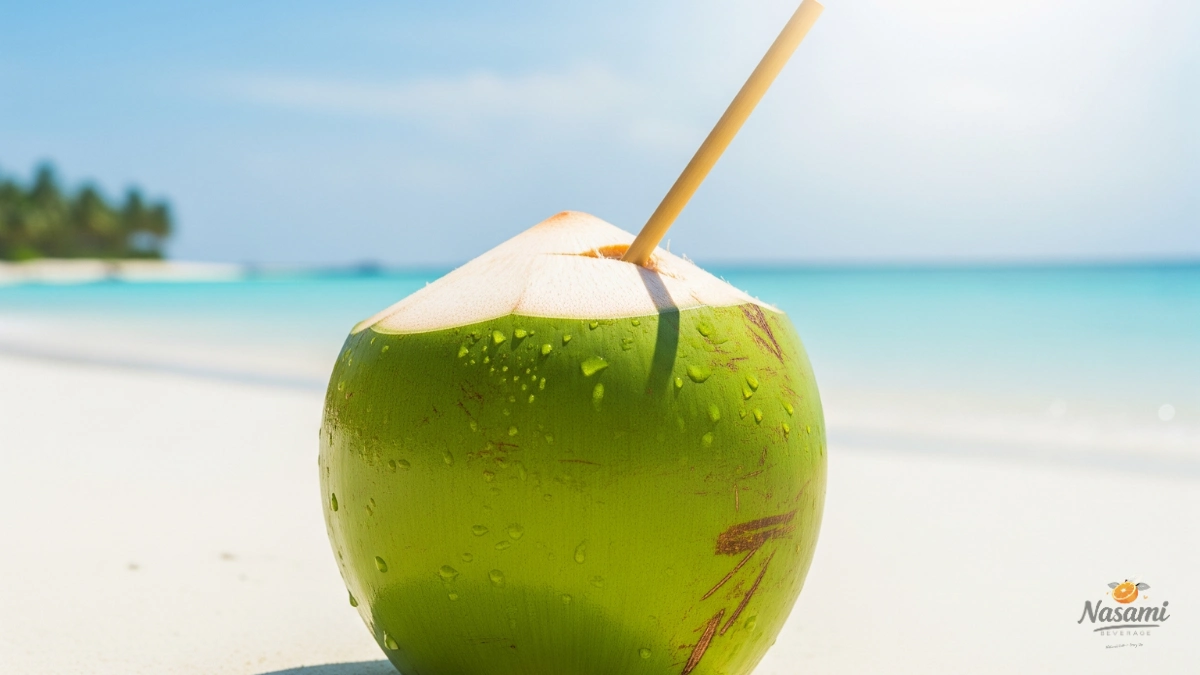Does coconut water have electrolytes? Coconut water has surged in popularity as a natural hydration solution, sparking curiosity about its electrolyte content. This article explores whether coconut water contains electrolytes, details its benefits for hydration, and compares it to sports drinks. From understanding electrolyte roles to choosing the best coconut water brands, readers will gain actionable insights into this tropical beverage. Additionally, the content addresses potential drawbacks, offers practical tips, and answers common questions to guide informed decisions about incorporating coconut water into daily routines.
What are electrolytes and why do they matter?
Defining electrolytes
Electrolytes are essential minerals, including potassium, sodium, magnesium, and calcium, that carry an electric charge to support bodily functions. These minerals regulate fluid balance, muscle contractions, and nerve signaling. Without adequate electrolytes, the body struggles to maintain hydration, leading to fatigue, cramps, or dizziness. Found in foods, drinks, and supplements, electrolytes are vital for everyone, from athletes to those seeking everyday wellness.
How electrolytes support hydration
Electrolytes facilitate water absorption, ensuring cells remain hydrated during physical activity or illness. Potassium maintains intracellular fluid levels, while sodium balances extracellular fluids. Magnesium and calcium support muscle and nerve health, preventing cramps during exercise. By replenishing these minerals, electrolyte-rich drinks aid recovery and prevent dehydration, making them a cornerstone of sports nutrition and daily health maintenance.
Does coconut water contain electrolytes?
The electrolyte profile of coconut water
Coconut water, sourced from young green coconuts, is naturally rich in electrolytes. An 8-ounce serving typically provides approximately 600 mg of potassium, 40 mg of sodium, 15 mg of magnesium, and 20 mg of calcium. These minerals make coconut water a potent hydration source, particularly due to its high potassium content, which surpasses that of many sports drinks. Research from Healthline confirms coconut water’s mineral composition supports effective rehydration.
How coconut water compares to other sources
Compared to sports drinks like Gatorade, coconut water offers a natural alternative with fewer additives. While sports drinks often contain higher sodium levels for intense workouts, coconut water provides a balanced electrolyte mix with minimal sugar. Plain water lacks electrolytes, making it less effective for rapid rehydration. Coconut water’s nutrient profile positions it as a middle ground, ideal for moderate exercise and daily hydration needs.
Benefits of coconut water for hydration
Rehydration after exercise
Studies, such as one published in the Journal of the International Society of Sports Nutrition, demonstrate coconut water’s efficacy in restoring hydration post-workout, making it a favorite among those wondering is coconut water good for athletes. Its electrolyte content mirrors that of oral rehydration solutions, making it suitable for replenishing fluids lost during mild to moderate exercise. Athletes favor coconut water for its ability to restore energy without the artificial flavors found in many commercial drinks.
Additional health benefits
Beyond hydration, coconut water supports overall wellness. Its potassium content helps regulate blood pressure, potentially reducing cardiovascular strain. With a low glycemic index, it suits individuals managing diabetes, as noted in discussions about the gi index of coconut water. Research from Ohio State Health & Discovery suggests coconut water may prevent kidney stones by reducing crystal formation. These benefits make it a versatile addition to health-conscious diets.
Coconut water vs. sports drinks: which is better?
Nutritional comparison
Coconut water and sports drinks serve distinct purposes. An 8-ounce serving of coconut water contains about 10 grams of sugar and 45 calories, compared to sports drinks’ 20 grams of sugar and 80 calories. Sports drinks offer higher sodium levels, crucial for prolonged, high-intensity activities. Coconut water, free of artificial colors, appeals to those prioritizing clean ingredients. This distinction guides consumers based on their activity level and dietary preferences.
When to choose coconut water
Coconut water excels for daily hydration, yoga sessions, or casual workouts due to its natural composition. It suits individuals avoiding synthetic additives or seeking a refreshing, low-calorie beverage. For endurance athletes or those sweating heavily, sports drinks may provide the sodium needed to prevent hyponatremia. Understanding these differences helps consumers select the right drink for their lifestyle.
Choosing the best coconut water
What to look for in coconut water
Quality coconut water comes from young coconuts, offering a pure, slightly sweet taste. Opt for products labeled 100% coconut water, avoiding those with added sugars or preservatives. Organic options ensure minimal processing. Check packaging for transparency about sourcing, as ethically produced coconut water supports sustainable practices. To ensure freshness, learn how to know if coconut water is bad by checking for off odors or discoloration.
Top coconut water brands
Several brands stand out for quality and taste. Vita Coco offers widely available pure and flavored varieties. Zico emphasizes sports-focused hydration with its natural coconut water. Harmless Harvest prioritizes organic, fair-trade production. Taste Nirvana delivers authentic flavor from Thai coconuts, while C2O focuses on sustainability. Exploring these brands helps consumers find a product that aligns with their values and needs.
Potential drawbacks and considerations
Limitations of coconut water
While effective, coconut water has lower sodium content than sports drinks, which may limit its suitability for extreme endurance activities. Individuals with kidney conditions should consult healthcare providers due to its high potassium levels, which could strain renal function. Awareness of these factors ensures coconut water is used appropriately within a balanced diet.
Portion control
Moderation is key when consuming coconut water. Drinking 8 to 16 ounces daily provides hydration benefits without excessive sugar or calorie intake. Overconsumption may lead to unnecessary calorie accumulation, particularly for those monitoring weight. Pairing coconut water with a varied diet ensures optimal health outcomes.
Frequently asked questions
What electrolytes are found in coconut water?
Coconut water contains potassium, sodium, magnesium, and calcium, which support fluid balance and muscle function, making it effective for hydration.
Is coconut water better than sports drinks for hydration?
Coconut water is a natural option with fewer additives, ideal for light exercise. Sports drinks provide more sodium, better for intense workouts.
Can coconut water help with dehydration?
Yes, its electrolyte content makes coconut water effective for rehydration after mild exercise or illness, restoring fluid balance quickly.
How much coconut water should I drink daily?
Consuming 8 to 16 ounces daily is sufficient for hydration. Consult a healthcare provider for personalized recommendations based on health needs.
Coconut water is a natural, electrolyte-rich beverage that supports hydration and offers health benefits like blood pressure regulation and kidney stone prevention. Its low-calorie, additive-free profile makes it an excellent choice for daily wellness or post-workout recovery.
While sports drinks may suit intense athletes, coconut water shines for moderate exercise and clean eating enthusiasts. Explore top brands like those offered by Nasami Beverage to experience its refreshing benefits. Share this guide with others or try coconut water to elevate your hydration routine.



